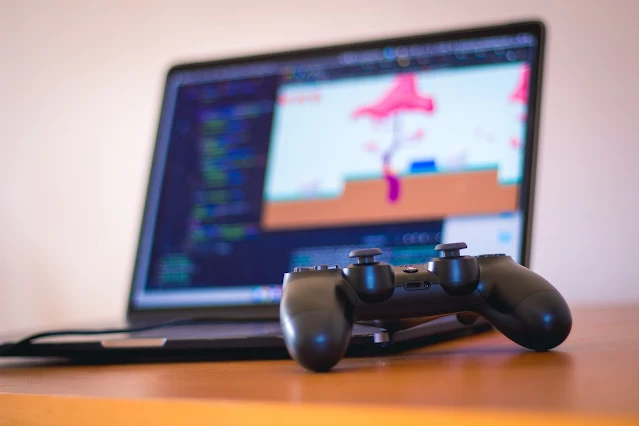The gaming industry has grown exponentially in the past decade, and with the emergence of new technologies, game development has become more accessible to aspiring game developers. However, creating a successful game that captures the attention of gamers requires more than just technical expertise. In this article, we will explore the key factors that contribute to successful game development and offer guidance on how to create the next big game.
Define your vision
Before embarking on game development, it is crucial to have a clear vision of what you want to achieve. Define the game's genre, target audience, and unique selling points. Conduct market research to determine what players are looking for in a game and identify gaps in the market. This will enable you to create a game that stands out and appeals to your target audience.
 |
| Photo by orva studio on Unsplash |
Build a talented team
Game development is a collaborative process, and it requires a team of talented individuals with diverse skills. Assemble a team of developers, designers, artists, and writers who share your vision and passion for game development. Consider outsourcing some tasks to a game development company that offers game development services if necessary. This can help you access a wider pool of talent and resources and free up your team to focus on their core strengths.
Develop a solid game concept
Once you have defined your vision and assembled your team, it is time to develop a solid game concept. This involves creating a storyline, characters, game mechanics, and art direction that aligns with your vision. Ensure that your concept is original and innovative while still appealing to your target audience. Create a prototype to test your concept and iterate until you have a compelling game that will keep players engaged.
Plan your budget
Game development can be expensive, and it is crucial to plan your budget carefully. Consider the cost of hiring a team, software and hardware, marketing, and distribution. Determine your revenue streams and create a realistic budget that will enable you to create a high-quality game without overspending.
Choose the right development tools
Select the right game development tools that align with your game concept, team's skills, and budget. Choose from a range of game engines, programming languages, and development frameworks. Ensure that the tools you choose are compatible with the platforms you plan to release your game.
Test and refine
Game development is an iterative process, and it requires constant testing and refinement. Test your game regularly to identify bugs, glitches, and gameplay issues. Take feedback from your team, beta testers, and players and use it to refine your game. Iterate until you have a polished and well-balanced game that will provide an excellent player experience.
In conclusion, creating the next big game requires a clear vision, a talented team, a solid game concept, a well-planned budget, the right development tools, and constant testing and refinement. With these key factors in mind and a passion for game development, you can create a game that will capture the attention of players worldwide. Consider partnering with a game development company that offers game development services to leverage their expertise and resources. Good luck in your game development journey!




0 Comments